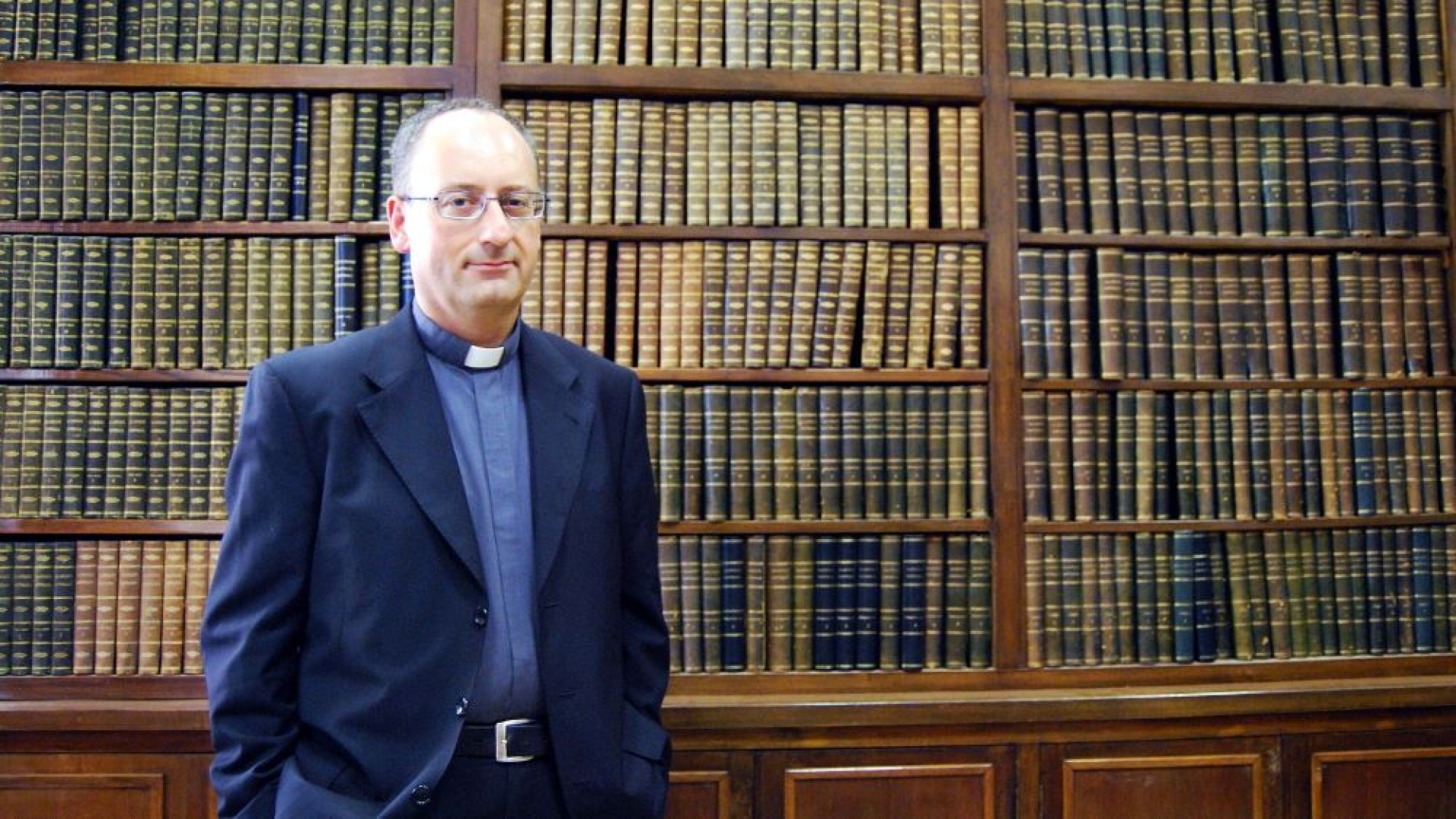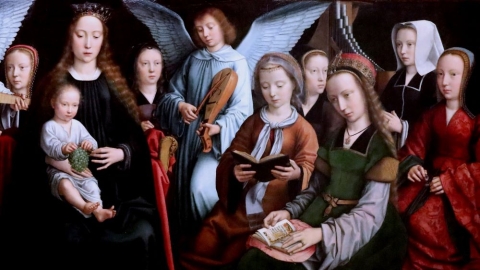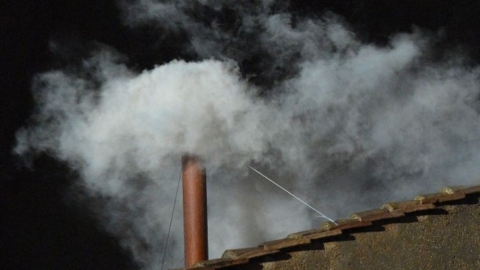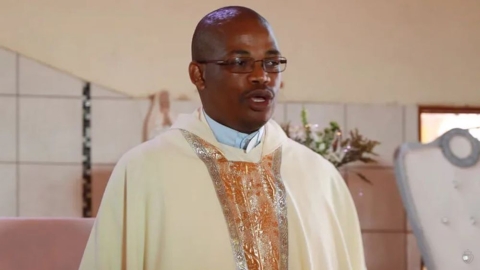Vatican: a Heretic Appointed to the Dicastery for Culture

Fr. Antonio Spadaro
Pope Francis named the Jesuit Antonio Spadaro, 57, undersecretary of the Dicastery for Culture and Education, according to the announcement made by the Holy See on September 14, 2023. For 12 years, he was director of the magazine La Civiltà Cattolica, where Fr. Nuno da Silva Gonçalves succeeds him.
On January 1, 2024, Antonio Spadaro will take up his new position as “number three” at the dicastery chaired by Cardinal José Tolentino de Mendonça, to which he has been a consultant since 2011. The Italian Jesuit was born on July 6, 1966 in Messina, Sicily. After studying philosophy, he entered the novitiate of the Society of Jesus. He was ordained a priest on December 21, 1996.
After obtaining a doctorate in theology at the Pontifical Gregorian University of Rome in 2000, in 2011 he became director of the Jesuit journal La Civiltà Cattolica, where he had started as editor in 1998.
Close to Francis, Fr. Spadaro made the magazine a channel to present the geopolitics of the 266th pope. La Civiltà Cattolica notably published the first interview with the Pope after his election. After each apostolic trip, Fr. Spadaro gave an account of Francis's exchange with the country's Jesuits.
The journal published its 4000th issue on February 11, 2017, and celebrated its 170th anniversary (1850-2020). It is now published in nine languages, including Chinese, Korean, and Japanese. It receives contributions from some 200 Jesuits around the globe.
La Civiltà Cattolica maintains close links with the Vatican, since its proofs are read in the Secretariat of State. Until the pontificate of John XXIII (1958-1963), the pope himself read the articles before they were published. John XXIII decided to transfer this responsibility to his Secretary of State, then to the members of the Secretariat of State.
Fr. Spadaro recently commented on a passage from the Gospel, which can be described as heretical, in the columns of Il Fatto quotidiano of August 20, 2023. The passage commented on is that of the Gospel of St. Matthew (15:21-28) which relates how a Canaanite woman asks for help from Christ because her daughter is tormented by the devil.
Our Lord apparently treats her harshly and it is only after the insistence of this mother that He ends up granting her a miracle. The Fathers, theologians, and exegetes have long given the explanation of this passage: Christ had said that He was sent to the lost sheep of Israel, and will only yield after this woman has shown herself steadfast through her faith.
Furthermore, Jesus Christ teaches us to insist, to ask and ask again to be heard, to exercise faith, patience, perseverance, humility, in this insistent request. This scene is therefore educational both for the petitioner and for us.
For the former editor-in-chief of La Civiltà Cattolica, Jesus was “insensitive.” He writes: “The Master’s harshness is unshakable. … Mercy is not for her. She is excluded. [Jesus] responds in a mocking and disrespectful manner. ‘It is not good to take the bread of the children, to cast it to the dogs.’ Jesus appears to be blinded by nationalism and theological rigor.”
“Then the woman replies by saying that even little dogs eat the crumbs that fall from their masters’ table.” The commentary continues: “A few words, but well expressed and likely to shake up Jesus’ rigidity, to conform Him, to ‘convert’ Him to Himself.… And Jesus appears healed, and in the end He shows Himself freed from the rigidity of the dominant theological, political, and cultural elements of His time.”
Thus, according to Fr. Spadaro: Jesus sinned through rigidity; He then converted and was healed. Jesus was therefore a sinner like all men. This heresy attacks several points of the faith.
Our Lord is insensitive and hard-hearted. - This goes against the word: “Learn from me that I am meek and humble in heart” (Mt. 11:29) and against the infinite mercy which animates our Savior.
Jesus mocks; He displays cynical derision. He does not respect the dignity of this woman. He seriously lacks humanity. - But Christ possesses in His holy humanity all possible perfection, being God through the divine Person who is united to Him.
Jesus needs to convert, because He too is a sinner. - But Christ is the Holy One, who possesses the holiness of God Himself, since He is God.
Jesus is conditioned by the political and cultural elements of His time. - Whereas, by His Person, He transcends all time since He is the Eternal.
Nothing can excuse such treatment of the figure of Jesus Christ, God and man. It is heresy and blasphemy. Fr. Spadaro, like a certain number of theologians, undoubtedly thinks that Christ only gradually became aware of His messiahship. It is denial, in one way or another, of the hypostatic union; it is to deny Christ.
For Christ has no human person, the Person of the God-man is divine: His “Me,” His “I,” is pronounced by the Word of God, in and through His humanity. How could He gradually become aware that He is God, He who is God? A mystery even more impenetrable than the mystery of the Incarnation, because it is a mystery of absurdity.
(Sources : cath.ch/La Nuova Bussola Quotidianna, traduction Benoitetmoi – FSSPX.Actualités)
Illustration : Antoniospadaro, CC BY-SA 3.0, via Wikimedia Commons





